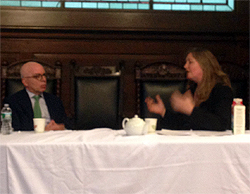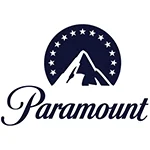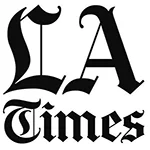Columbia J School, in the news because CJR business news editor Dean Starkman has authored The Watchdog That Didn't Bark (meaning financial reporters), was told to close last year by USA Today media columnist Michael Wolff.
Wolff’s advice, in a March 25, 2013 column, prompted newly appointed web editor Emily Bell to invite Wolff to the campus for a session April 4, 2013 with J teachers and students.
 Wolff debates Bell last year. Photo: wolffvsbell.tumblr.com
|
Extensive coverage of the “battle” that resulted was provided by a tumblr web posting.
Wolff, noting that news media are “shrinking at historic rates,” said that Columbia, “raking in $58,008 in yearly tuition and fees from each student and then sending them into a world of ever-bleaker prospects, ought, more reasonably and honestly, to just shut its doors.”
He noted, as others have including Lauren Streib of Forbes, that “ironically or cruelly,” J schools are getting more applicants just because they can’t find jobs.
Called J School “Intellectual Failure”
Wolff’s column called the Columbia J School an “intellectual failure” because “the information marketplace is going through a historic transformation, involving form, distribution, business basis and cognitive effect, and yet Columbia has just hired a practitioner to lead it with little or no career experience in any of these epochal changes.”
Wolff referred to Steve Coll, a staff writer at the New Yorker who was named dean last year. Coll has authored seven books of nonfiction and won two Pulitzer Prizes. He was a reporter, foreign correspondent, and senior editor at the Washington Post from 1985-2005.
The Wolff column said J school tends to teach "many less economically valuable skills: methodological reporting, sourcing protocols, research procedures, and a grounding in ethical and civic responsibility. The ideal goal continues to be to get you a job on the New York Times or the Washington Post two organizations trying to fire more people than they hire."
Wolff, during the April 4 session, said the J School should have promoted dean of academic affairs Bill Grueskin to dean instead of going outside.
He also criticized the appointment of Bell, a native of the U.K., as professor of professional practice and director, Tow Center for Digital Journalism at the School. She headed digital content for the Guardian News and Media from 2006-2010 after being a reporter at the Observer newspaper on media, marketing and technology. It became part of Guardian News and Media in 1990. She is a 1987 graduate of Christ Church, Oxford University, with a Master’s degree in jurisprudence.
Wolff wondered why Columbia went abroad for this post.
Zingers by Wolff, Few by Bell
Coverage of what was called a “death match” by the student posting the segment on tumblr consisted mostly of comments by Wolff.
 Coll |
He said the J School “hasn’t produced and never will produce leaders in the field. There are a scattered few. This school…was supposed to become the center of the journalism profession…and it never really happened. Most of the journalism business does not depend on going to journalism school. A fundamental crisis of identity.”
Another quote was: “One of the things I’ve heard is that students say they’re not there to make money. I’d stop there. Money is one of the most important things that will happen in your career. You are here to make money. If you don’t make money, you will be unhappy.”
He told the J school leaders: “If there isn’t a guarantee that they will get jobs then you shouldn’t take money from these students...you can go into this profession without a graduate degree. There is no evidence that this will help you in this profession…and I find that slightly troubling.”
Bell at one point attacked Wolff’s “market centric view” on journalism—calling it his measurement of success for the school. At another point she called Wolff a “narcissistic exhibitionist.” She offered Wolff a cup of tea at another point.
Michael Lewis, author of Liar’s Poker and other books, wrote a cover story for the New Republic in 1993 that had the title, “J-School Ate My Brain.” He had spent a day at the School and told one of the classes that he thought the School was “B.S.”
Educators Skip PR Seminar, Tylenol Expose
CJR has never mentioned the existence of PR Seminar, the private, off-the-record group of nearly 200 blue chip corporate PR executives and major PR firms that has a major four-day meeting at a prime resort each year and whose executive committee meets throughout the year. It functions, for PR and communications executives, like the American Legislative Exchange Council, an organization of 2,000 state legislators (almost 100% Republican) and 300 corporate representatives that crafts bills for state legislatures throughout the nation.
David M. Stone, executive VP of Columbia for communications, attended the 2010 Seminar.
General Stanley McChrystal addressed the 2013 Seminar at Half Moon Bay, Calif. Former Secretary of State Condoleeza Rice was a scheduled speaker but cancelled at the last minute.
PR executives of media that have been regular attendees at Seminar include Monie Begley Feurey of Forbes, Judith Czelusniak of Bloomberg (who has left the company), and Betty Hudson of National Geographic. Richard Tofel, general manager of ProPublica and prevously in PR for the Wall Street Journal, attended in 2012. Richard Powell, chief comms. officer for Bloomberg, attended the 2012 meeting.
Educational World Masks Seminar
Educators present in the past few years include David Demarest of Stanford; Stephen Jolly, director of external affairs, University of Cambridge, U.K.; Thomas Mattia, Yale University; Deborah Bohren, PR for the NYU Langone Medical Center; David Lampe, University of Michigan; Christine Heenan, VP, PA and communications, Harvard, and Denise Hill, School of J and Mass Comms, University of N.C. at Chapel Hill.
Peter Sussman, a founder of the ethics committee of the Society of Professional Journalists, has blasted attendance at Seminar by executives and editorial staffers of more than 25 major media over the years including the New York Times, Bloomberg, Washington Post, Financial Times, etc. None of the media has ever mentioned the existence of Seminar.
Journalism as well as PR students are being short-changed by the conspiracy of silence that surrounds powerful PR seminar. Corporate PR policies are remarkably similar among the blue chips and PRS is no doubt one of the reasons.
CJR and NYT have also ignored The Tylenol Mafia, a 489-page book by former Johnson & Johnson employee Scott Bartz that claims there is copious evidence that poisons were introduced in bottles of Extra Strength Tylenol capsules in 1982 and 1986 while the bottles were still in the J&J supply chain. Wikipedia has recognized the claims in the book.
Comment by Jane Genova:
You are right on the money. And, as Wolff points out, money is important. Those already in journalism have to consider a back-up or additional line of work, in case they are are laid off. But those who haven't entered should consider the ROI on J school. If their family owns a chain of newspapers, maybe the ROI will be good. But if they have no set plan they could wind up like current graduates of law school: A lost generation, saddled with student loans.
But newbies enrolling in J school won't be the first lost generation when it comes to career paths. I was in a doctoral program at a "good" school when the market for college Humanities professors tanked. For too many years I wandered in the desert of dashed professional dreams. Finally I landed on my feet when Chevron liked my writing and respected my academic background and hired me as a ghostwriter and speechwriter.
Your article is an important one, Jack. But will it be heeded or ignored by those who see themselves as "special" and able to buck the downsizing trend and have a long well-paid career in journalism.


 Trump Media & Technology Group today reported a $58.2M net loss on $4.1M in 2023 revenues, a disclosure that drove its stock price down 22.6 percent to $47.96.
Trump Media & Technology Group today reported a $58.2M net loss on $4.1M in 2023 revenues, a disclosure that drove its stock price down 22.6 percent to $47.96. Barry Pollack, an attorney at Wall Street’s Harris St. Laurent & Wechsler, has registered Julian Assange as a client with the Justice Dept. “out of an abundance of caution.”
Barry Pollack, an attorney at Wall Street’s Harris St. Laurent & Wechsler, has registered Julian Assange as a client with the Justice Dept. “out of an abundance of caution.” Paramount Global to slash 800 jobs in what chief executive Bob Bakish calls part of an effort to “return the company to earnings growth"... Rolling Stone editor-in-chief Noah Shachtman is exiting at the end of the month due to disagreements with chief executive Gus Wenner over the direction the magazine is taking... The New York Times broke the $1 billion barrier in annual revenue from digital subscriptions in 2023... Press Forward is investing more than $500 million to strengthen local newsrooms.
Paramount Global to slash 800 jobs in what chief executive Bob Bakish calls part of an effort to “return the company to earnings growth"... Rolling Stone editor-in-chief Noah Shachtman is exiting at the end of the month due to disagreements with chief executive Gus Wenner over the direction the magazine is taking... The New York Times broke the $1 billion barrier in annual revenue from digital subscriptions in 2023... Press Forward is investing more than $500 million to strengthen local newsrooms. The majority of news articles are read within the first three days of publication, according to a recent report.
The majority of news articles are read within the first three days of publication, according to a recent report. The Los Angeles Times gives pink slips to 115 people or 20 percent of its newsroom staff... TIME is also laying off about 30 employees, which is approximately 15 percent of its editorial staff... The Baltimore Banner, which was launched by Stewart Bainum in 2022 after he failed to buy the Baltimore Sun, added 500 subscribers per day in the three days following Sinclair Broadcast Group's deal to purchase the Sun.
The Los Angeles Times gives pink slips to 115 people or 20 percent of its newsroom staff... TIME is also laying off about 30 employees, which is approximately 15 percent of its editorial staff... The Baltimore Banner, which was launched by Stewart Bainum in 2022 after he failed to buy the Baltimore Sun, added 500 subscribers per day in the three days following Sinclair Broadcast Group's deal to purchase the Sun.


 Have a comment? Send it to
Have a comment? Send it to 
No comments have been submitted for this story yet.